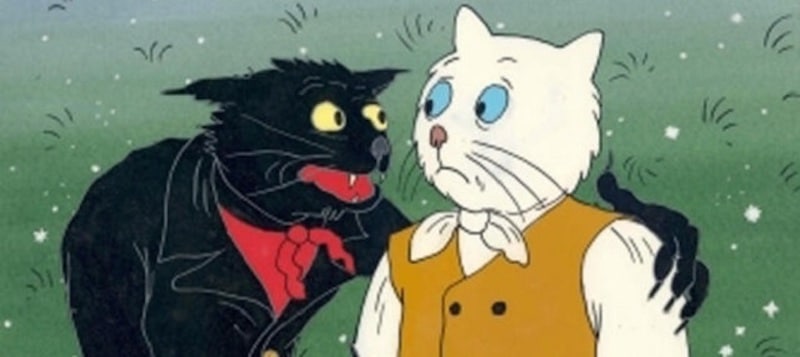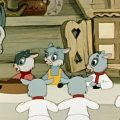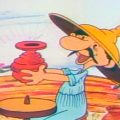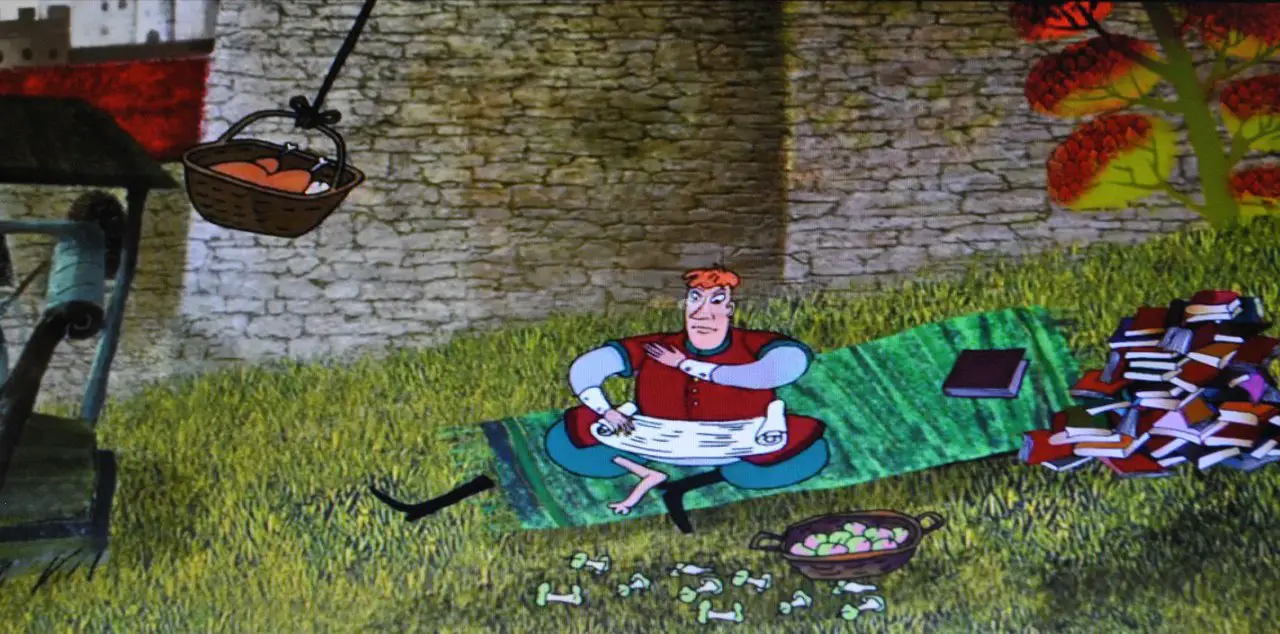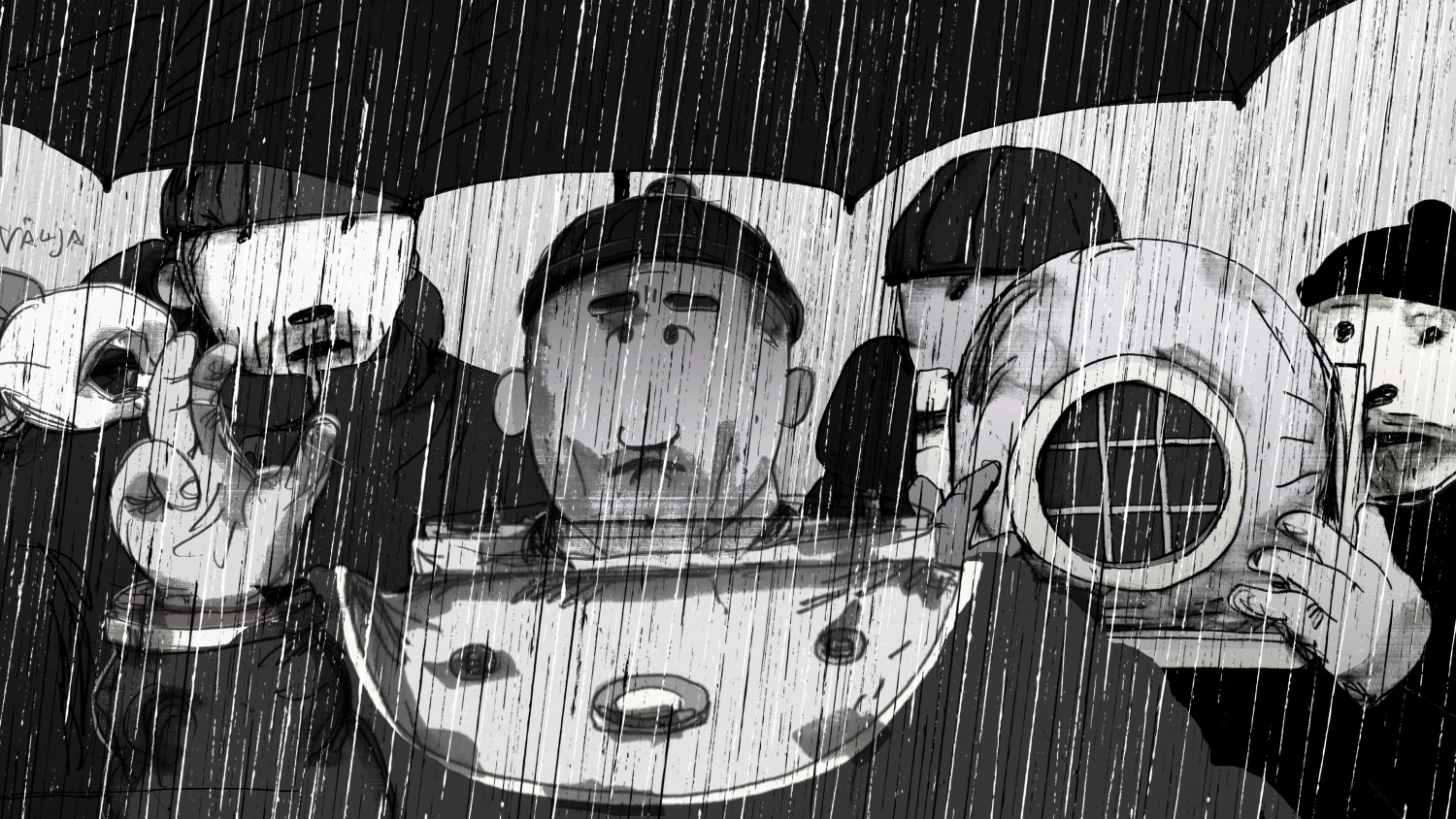The Cat’s Windmill (Kaķīša dzirnavas) is a Latvian short animated film. It is based on the short story/fairy tale of the same name, written by Kārlis Skalbe, a Latvian writer who lived and wrote in Latvia in the years of the Russian Empire and Soviet Union. Skalbe was also a Latvian nationalist and revolutionary, and left Latvia in 1944 to avoid the Soviet occupation. He began publishing his work in the early 1900s, and Windmill appeared in 1913. The Cat’s Windmill is considered Skalbe’s best-loved story. Additionally, a 2016 nationwide poll declared it to be Latvia’s favorite published work.
The story is about a family of a white cat and his three daughters who own a windmill. When it is time for the father-cat to begin finding husbands for his daughters, he needs money, so he takes out a loan on the windmill. But he takes out the credit through a black cat—who wanted the windmill for himself—who, in turn, took the credit from the devil himself. But this part of the plot is a small part of the story; like all good fairy tales, it’s ultimately about good and evil, and above all forgiveness.
The cartoon, which is about an hour long, was first broadcast in 1994 in the National Treasures: 100 Grams of Culture (Nacionālie dārgumi. 100g kultūras) program by Latvian State Television. It was produced by Dauka Studija, a Latvian animation studio founded in 1969. The cartoon was directed, and the story adapted for film, by Rosalia Stiebra, a Latvian animator. She’s been directing and writing animated films since the late 1960s.
Director: Rosalia Stiebra
Voice actors: Gundars Āboliņš, Pēteris Liepiņš, Gunta Virkava, Lilita Ozoliņa, Leons Krivāns
Production company: Dauka
The full cartoon:
https://www.youtube.com/watch?v=9gs–yUHSg8


